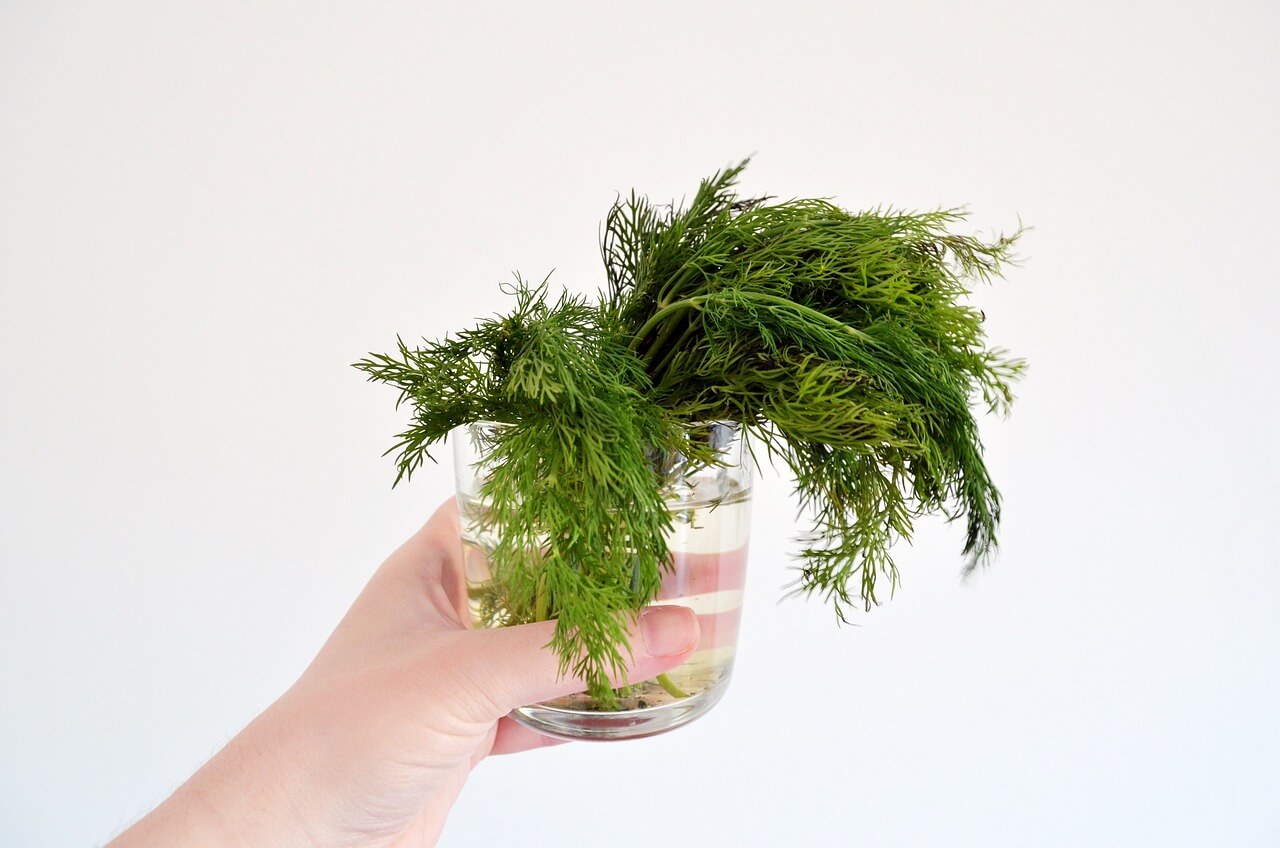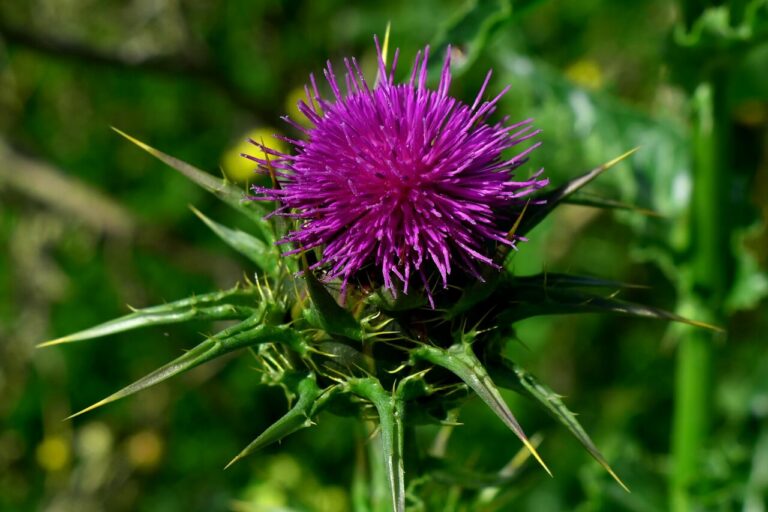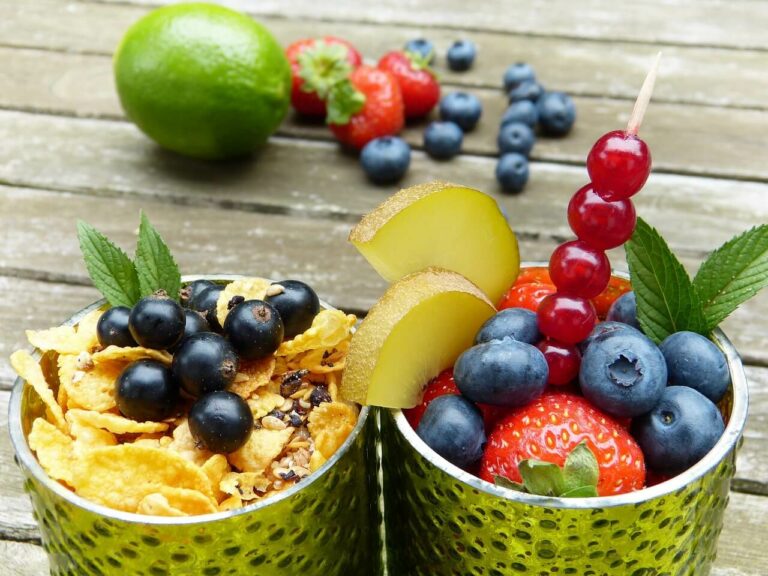Dill Water for Newborns: Benefits and Recipe

Does your baby cry constantly? Have you had too many sleepless nights even to count? Your little one likely has tummy problems. Babies get excessively gassy and colicky due to their fragile digestive systems. Fortunately, dill or gripe water can be the ideal solution to help babies deal with unpleasant tummy situations.
Gripe water products are readily available at pharmacies and drug stores. You can easily feed it to your little one in their bottle or pop a spoon in their mouth. Please keep reading to learn more about making dill water at home and its benefits for babies and adults alike.
Contents
Are Dill Water and Gripe Water the Same?
Gripe water is an over-the-counter supplement containing a mixture of herbs and sodium bicarbonate. These herbs include fennel extract, chamomile, peppermint, ginger, and dill. Besides gas and stomach issues, gripe water is also known to relieve hiccups and teething pain.
Meanwhile, dill water only contains dill mixed in water. A single cup or nine grams of dill contains only four calories but a significant amount of folate, iron, vitamin C, manganese, and vitamin A. Dill also provides 1% to 2% of the daily value for copper, magnesium, zinc, riboflavin, potassium, and calcium.
How to Make Dill Water for Babies?
If your baby has stomach issues, like gas, here’s how to make dill water.
- Put a teaspoon of shredded dill leaves in a glass of hot water (200ml).
- Let the mixture cook for about 40 minutes.
- Pour it into a bottle.
- Let it cool before feeding it to your baby.
DIY Gripe Water Recipe
If dill alone doesn’t satisfy you, it’s pretty easy to make gripe water at home too. Here are the ingredients you’ll need:
- A bag of chamomile tea
- A bag of lemon ginger tea
- 1 cup of water
- 1 teaspoon of loose fennel seeds
- 1 teaspoon of dill weed
If you’re worried the brew won’t taste good, add one teaspoon of raw cane sugar for taste. Once you’ve gathered your supplies, follow these instructions to make gripe water.
- Put all ingredients other than water in a small bowl.
- Pour a glass of hot water onto these ingredients and let them steep for 10 minutes.
- Add one or two glasses of water to make more gripe water.
- Refrigerate the brew. It will be fresh for up to two weeks.
Dill Water Dosage for Your Colic Baby
Feed a tablespoon of dill water to your baby. Or you can put 5ml in their bottle for slow feeding. Do not give your baby dill water more than two to three times daily.
Side Effects of Dill Water
A common thing parents notice in their kids after feeding them gripe water is drowsiness. However, there’s no scientific evidence to show that this could be a side effect of dill water.
Apart from drowsiness, parents should also look out for signs of allergies when using this remedy. Some common symptoms to notice are:
- Diarrhea
- Vomiting
- Watery eyes
- Itchiness
- Hives
Again, there’s no evidence that this remedy causes allergies. It still helps to be aware of changes in your toddler’s body or behavior that could indicate an allergic reaction.
Is Dill Water Safe for Newborn Babies?
If you buy dill-containing gripe water from a drug store, the safety profile of the formula will depend on its ingredients and brand. Ask your child’s pediatrician to recommend you gripe water for their age.
While most formulations are safe, some gripe waters contain alcohol, which isn’t safe for newborns. Some of them also contain sucrose. While the sugar isn’t toxic, it’s not the best choice for babies, especially those teething.
You can also buy gripe water for newborns from an online site. Read reviews from other customers to find an alcohol-free product for your child.
Is Dill Water Better Than Gas Medicine for Colic?
Medical experts say you should use gripe water if your baby is uncomfortable and not in pain. If your child exhibits gas pain, gas drops are a better option.
Although the former has been used for centuries, there’s no guarantee it will work on a colicky child. The same is true for the gas drops too. Consult a pediatrician for better insight if your child has consistent gas issues.
Alternatives to Dill Water for Gas Issues in Children
Besides dill water, you can try some other home remedies for a colic child.
Carry and Rock
Some infants with stomach upset like to be rocked and held rhythmically. You can walk with your little one in your arms or take them for a drive. Gentle rocking motions can also help release gas.
Avoid Some Foods
Breastfeeding mothers should avoid eating foods that can make their infants gassy. Here are some general foods mothers should avoid:
- Onions
- Caffeine
- Cabbage
- Dairy products
While these are general food items, you should also notice if any specific item you eat makes your newborn extra fussy and uncomfortable.
Try a Different Feeding Position
If you feed formula milk to your infant, hold them upright to prevent reflux. Instead of one large meal, break the feedings into smaller and frequent meals.
Conclusion
Remember that dill water may help relieve a gassy or colic kid, but the FDA or any regulatory authority has not approved it. Ask your doctor to prescribe a suitable brand of gripe water to soothe your baby’s stomach issues.
Frequently Asked Questions
What Is Dill Water Good For?
Dill water is good for relieving stomach aches and gas problems in children. Adults can also drink it to get rid of bad breath.
Can I Put Fresh Dill in Water?
Putting dill in water helps maintain its freshness. Bundle the dill like a bouquet and put it in a glass of water. Change the water every time you use dill from this bundle.
Can You Boil Dill and Drink It?
Put some dill leaves in water and boil for about five minutes. Strain the water and drink it. The mixture will enhance your metabolism and improve digestion.

Rahul is a nutritionist and personal trainer with 3+ years of experience in the field of health coaching. He specializes in nutrition science, with a keen eye for how food choices, lifestyle habits, and physical activity impact our bodies.






